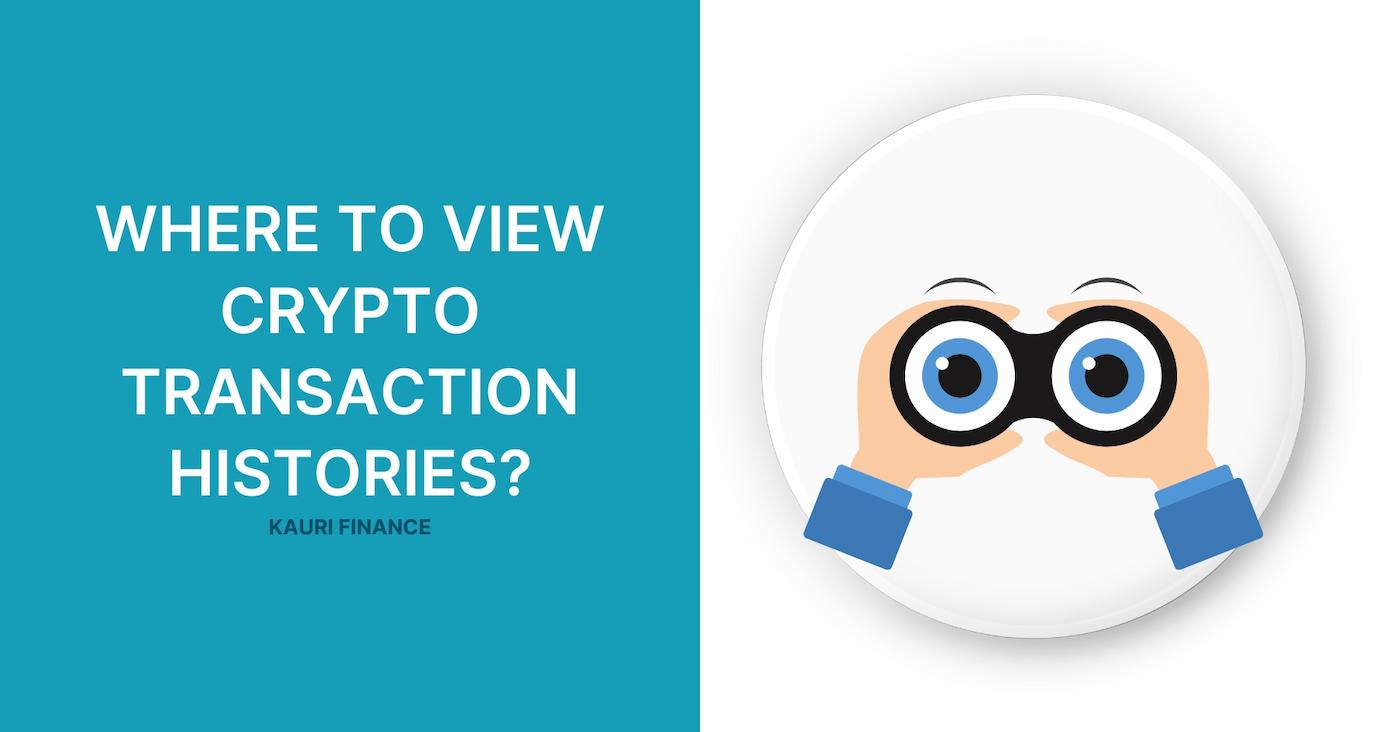
Where to View Crypto Transaction Histories
- Where can I check my cryptocurrency transaction history?
- 1. Blockchain Explorers
- 2. Crypto wallets
- 3. Third-party services
- 4. Downloading the entire blockchain history
- How do I use the blockchain explorer to view transaction history?
- How do I use Blockchain Explorer to check my wallet history?
- How do I use wallet activity to view transaction history?
- How do I use third-party services to view transaction history?
- View transaction history by loading the blockchain
- How do I find lost cryptocurrency transactions?
- Kauri Finance

Tracking the history of cryptocurrency transactions is an important aspect of digital asset management. Transaction fees can vary depending on the size of the transaction and the level of network activity, making transaction monitoring essential to minimize costs. Viewing transaction history helps users analyze their transactions, identify patterns, and develop strategies for more efficient use of funds.
Where can I check my cryptocurrency transaction history?
1. Blockchain Explorers
Blockchain Explorers allow users to view records on cryptocurrency registries. These tools are blockchain-specific and show all transactions initiated and completed on the network. Most blockchain explorers are publicly available and offer an intuitive interface to search for transactions, blocks, wallet addresses and digital asset history.
Examples of blockchain explorers:
- Bitcoin: btcscan.org
- Ethereum: etherscan.io
- Solana: solscan.io
- Litecoin: live.blockcypher.com/ltc/
- XRP: bithomp.com/explorer
2. Crypto wallets
Crypto Wallets log all incoming and outgoing transactions, which can be viewed in the history section. Users can click on any transaction to see its details. This is especially convenient for those who use the wallet for frequent transactions.
3. Third-party services
Third-party platforms can offer aggregated transaction data, displaying it in a convenient format. These services allow users to filter transactions by various parameters such as amount, date, and token type, making it easier to analyze the data. There are also crypto wallet transaction tracking tools that provide information on transaction history, investment patterns, and possibly wallet owners.
4. Downloading the entire blockchain history
Advanced users can download the entire blockchain history by running a full node. This enables local searches for transactions without using online resources. However, this process requires a significant amount of storage and resources.
How do I use the blockchain explorer to view transaction history?
- Navigate to the search field on the blockchain explorer.
- Enter the details of the cryptocurrency transaction. Explorer allows you to search by different parameters such as sender or receiver address, transaction ID, transaction date or block hash.
- Click "search" or the search button to start the search.
- If you enter the transaction details correctly, the explorer will show the result or a list of possible results.
- Click on the desired transaction to see additional details. You can download or export data for analysis, or copy the transaction ID to provide evidence.
How do I use Blockchain Explorer to check my wallet history?
- Go to the search bar of the blockchain explorer.
- Enter the exact address of the wallet in the search bar. Copy and paste the address from the wallet app to avoid mistakes.
- Press "search" or the search button.
- Make sure the wallet is compatible with the blockchain explorer.
Search results will display the entire digital currency history and assets present in the wallet. Browse through various categories including analytics and public comments about the wallet.
How do I use wallet activity to view transaction history?
For an example of using an Exodus multi-chain wallet to access transaction history:
- After logging into Exodus, click on the wallet icon.
- Locate and click the portfolio button. Users with multiple portfolios must select the appropriate portfolio to view transaction history.
- Click the profile button at the bottom and select the history button to view transactions.
- Use the All drop-down menu to filter transactions by type: sent, received, or exchanged.
- Click on a transaction to view its details.
How do I use third-party services to view transaction history?
For an example of using the Exodus platform to access blockchain history:
- Tap/touch the "History" icon in the Exodus app. Users must select a portfolio to view. If users do not have multiple portfolios, they can skip this step.
- Use the "All Assets" drop-down menu to filter the results. The menu allows you to filter results by sent, received, and exchanged transactions.
- Click on any individual transaction to explore its details.
View transaction history by loading the blockchain
For an example using the Bitcoin network:
- Start the initial block download (IBD) process, which includes loading the entire blockchain and verifying blocks.
- Open the Bitcoin block log to view the transaction history. It will show all Bitcoin transactions.
- Use the wallet interface or blockchain explorer web interface for easy viewing.
How do I find lost cryptocurrency transactions?
Tracking down lost or missing cryptocurrency transactions can be tricky. First, scrutinize existing records, including your cryptocurrency wallet's transaction history, exchange statements, and email confirmations.
If the transaction hash fragment or wallet address is known, use a blockchain explorer to track the transaction. As a last resort, contact the support team of your exchange or wallet. Specialized data recovery services can also help, but should be used with caution due to possible scams.
Kauri Finance
Kauri Finance provides users with robust cryptocurrency management tools, including non-custodial wallets and corporate cards, making it safe and convenient to manage digital assets. Kauri Academy plays a key role in educating users, helping them better understand the cryptocurrency market and effectively utilize blockchain technology.
